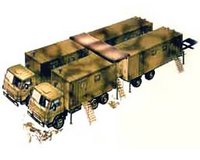The coming battle between the federal government and the provinces over federal transfers and the battle among the provinces over federal-provincial finances started to heat up over the past couple of weeks.
The heat came from comments by federal intergovernmental affairs minister Michael Chong and federal finance minister Jim Flaherty that the offshore deals since in 2005 have wrecked Equalization, the major federal transfer to provincial governments.
Such is the sensitivity of the issue that last Friday, Flaherty issued a statement, reported in Saturday's
Telegram, that
“"[m]edia reports suggest that the government is considering scrapping the offshore agreements reached last year with Nova Scotia and Newfoundland and Labrador....
"“This is both factually incorrect and misleading. During a brief media availability today in Toronto, I made no mention of Nova Scotia or Newfoundland and Labrador by name nor did I use the words oil and gas."”
The Equalization Top-Up
Equalization is a pretty simple concept: in order to make sure that provincial governments have similar levels of revenue with which to provide key services, the federal government transfers some of its revenues to each qualifying provincial government based on a formula.
As the
Bond Papers put it in January 2005:
Basically, Equalization is like a wage top-up scheme for provinces. The federal government figures out a national average amount of revenue each province should get per person. Fall below the average and the province gets a cheque from Ottawa. Meet or exceed the average and you get nothing. No province pays into the program; the money comes from federal government revenues. As it stands right now, Alberta and Ontario make more than the national average and get no Equalization. Saskatchewan will join them in the "have" category, as some call it, within the next year. All the other provinces get some amount of Equalization. Quebec gets as much as all the others combined because the money is paid out based on population.
In 1957, when the program started provinces were topped-up to the average of the top three provinces. Alberta received Equalization until 1964, but once its income went above the average it didn't get a penny in Equalization. In 1967, the average was based on all 10 provinces and since 1982 it has been based on five selected.
The January 2005 Deals
The offshore deals signed by the Mulroney administration with both Nova Scotia and Newfoundland and Labrador contained sections that allowed both provinces to collect a special federal transfer based on growth in provincial government revenue from offshore oil and gas development. For a period of 12 years, both provinces could collect a declining payment called an Equalization offset that was designed to protect the provinces from dramatic declines in Equalization as offshore revenues grew.
Several administrations Newfoundland and Labrador sought to amend the offset provisions of the 1985 Atlantic Accord to extend the offset benefits over a greater period of time or, as in the case of the original Williams
proposal in January 2004 to effectively hide all oil and gas revenue from Equalization in perpetuity.
Both in the original
Accord discussions and for each subsequent federal administration, one of the major concerns was addressing demands from the two Atlantic provinces without undermining the basic principles on which Equalization operated. The solution in 1985 was the declining offsets, which were temporary.
In
January 2005, the solution was to link the added offsets to Equalization entitlement: if a province no longer qualified for Equalization, then it also no longer qualified for the added offset. While Equalization can be spent by a provincial government on any public purpose, the Martin-Williams deal indirectly linked continued offsets to improve long-term economic benefits for the province, particularly to debt reduction.
It's about Ontario
At the root of the Chong and Flaherty comments are fundamental misunderstandings about the January 2005 offshore deals that have been prevalent since at least
February 2005. In a perverse way, both supporters of the Williams-Martin deal and its detractors have the same fundamental misunderstanding of the deals.
But more importantly, both Chong and Flaherty reflect the sensitivity in Ottawa these days to Ontario's concerns about federal transfer payments to the provinces. Ontario has been campaigning for some time about the unfairness of the current system and Ontario Premier Dalton McGuinty's comments last winter were just part of that.
Flaherty's speech last Thursday was in Whitby, just east of Toronto and he made it a point to
remind people that he used to be the Ontario treasurer:
"I acknowledge the spending pressures on the provinces. I was here," said Flaherty, who was Ontario's finance minister under former premier Mike Harris from 2001 to 2002. [Emphasis added]
Ontario concerns still there; plus Quebec and more
In that context, Ontario is no more inclined to accept the Stephen Harper proposal for Equalization changes than there were to accept the January 2005 offshore deals.
After all, both talk about hiding certain types of income from Equalization and serve, after a fashion, as a distortion of how provincial government income is calculated. The Harper proposals - which would remove all non-renewable resource revenues from the Equalization formula -
would see some provinces lose Equalization entitlements while others would benefit greatly.
But fundamentally, the Ontario
concern would remain. Simply put, Ontario is concerned that the overall impact of federal transfer programs has created a situation where Ontario is being shortchanged. That's the point that, fundamentally, Flaherty was agreeing with when he sympathized with Ontario's supposed plight.
The Harper proposals adversely affect more provinces than Ontario, however. Any province which does not derive a significant chunk of its revenue from non-renewables would be at a disadvantage under the Harper changes. While some, like Saskatchewan, would benefit greatly, others, including
Quebec would see a decline in their transfers.
In the end, it may well be the political costs of introducing the Harper changes that may scuttle them or at least delay their implementation. After all, changes to Equalization require unanimous consent of all provinces. With the Conservative guarantee that no province will be adversely affected by the changes, in order to move forward, Stephen Harper and his finance minister Jim Flaherty might have to put in place offset arrangements for almost half the provinces in the country.
Ultimately, that would make a mockery of the idea of keeping the fundamental Equalization program intact and treating all provinces equitably, while recognizing special circumstances. Those special circumstances were recognized in the offshore deals in 1985 and 2005 but they were limited to two provinces.
The Newfoundland and Labrador Impact
For Newfoundland and Labrador, there is little chance the offshore Equalization deals will be scuttled. No federal administration would repudiate a legitimate agreement between Ottawa and one or more of the provinces. However, all other things considered, no additional offsets will probably flow this year and for the next four or five years under the 2005 agreement since Newfoundland and Labrador will likely no longer qualify for Equalization.
That said, the looming federal-provincial fracas over Equalization could lead to some tense moments and an uncertain future for the province's share of federal transfers, in general.
Missing from the local discussion has been an understanding of what the provincial government is actually seeking. As noted at the
Bond Papers a month ago, Danny Williams' proposal for Equalization reform fits with the way Equalization has operated for most of the past 40 years. It would also give full effect to the Atlantic Accord 1985 and its 2005 supplement. That is fundamentally at odds with the position supported by Loyola
Sullivan - the Harper plan - which will take some time to negotiate and may never be put in place as currently proposed.
Add those considerations to the statements coming from federal minister Chong and Flaherty and one cannot say for certain how Ottawa proposes to address concerns from all provincial governments about federal transfers to the provinces.
Given Flaherty and Chong's evident distaste for the local offshore deals and their sympathy for Ontario's arguments, it also isn't clear how the new Harper administration will account for deals that have been blamed for destroying the Equalization program.
Danny Williams may well have to fight to keep the deals from being factored in to discussions on the so-called fiscal imbalance that will consider more than just Equalization.
The looming Equalization War, that has been in a
sitzkreig stage since the election, is heating up.
 Fisheries minister Backupable Tom Rideout (left) issued a news release Friday in which he continues to point out that Fishery Products International (FPI) didn't have permission from either Rideout or his predecessor to ship fish outside the province for processing.
Fisheries minister Backupable Tom Rideout (left) issued a news release Friday in which he continues to point out that Fishery Products International (FPI) didn't have permission from either Rideout or his predecessor to ship fish outside the province for processing. Sorta reminds one of this picture from the 1989 campaign (right) in which Rideout appears to be holding up a pistol.
Sorta reminds one of this picture from the 1989 campaign (right) in which Rideout appears to be holding up a pistol.








